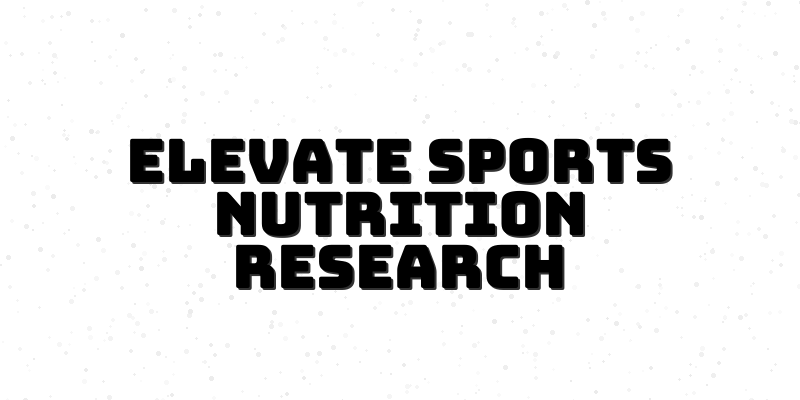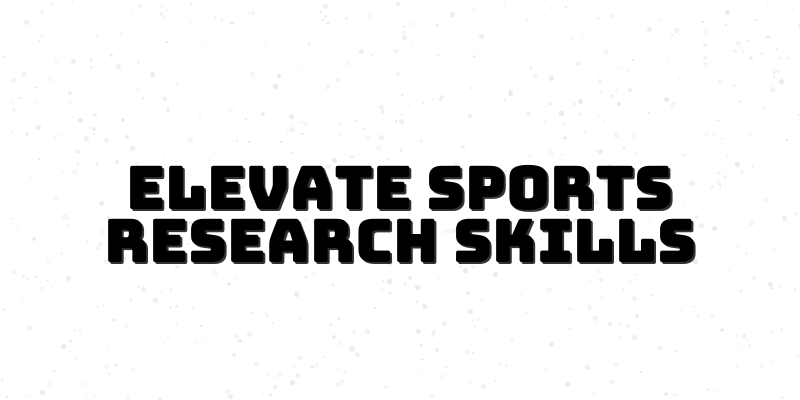The Impact of Sports Nutrition Research on Athletic Performance
In the ever-evolving field of sports science, understanding the intricate relationship between sports nutrition and athletic performance has never been more critical. This post delves into the essential components of sports nutrition research, offering insights that can elevate your expertise and enhance recovery strategies for athletes.
Understanding the Role of Sports Nutrition in Athletic Performance
Sports nutrition plays a vital role in optimizing athletic performance. Proper nutrition ensures athletes have the energy they need during training and competition, aiding in recovery and reducing the risk of injury. With the rise in competitive sports, the importance of tailored nutrition plans cannot be underestimated. These plans should align with an athlete's specific goals and physiological demands, providing sufficient macro- and micronutrients to support their training regimens.
Key components of sports nutrition include carbohydrates, proteins, fats, vitamins, minerals, and hydration. Each element has a unique contribution to performance; for example, carbohydrates provide energy for endurance activities, while proteins are essential for muscle repair and growth. By conducting thorough sports nutrition research, professionals can better inform athletes on effective dietary strategies that enhance their performance and overall health.
Additionally, the timing of nutrient intake is crucial in maximizing the benefits. Pre-, during, and post-workout nutrition can significantly influence an athlete's energy levels and recovery. Ongoing research in this area helps sports scientists and nutritionists develop evidence-based guidelines for optimal nutrient timing.
Navigating Research Methodologies in Sports Nutrition
Research methodologies in sports nutrition encompass a variety of techniques ranging from qualitative assessments to advanced quantitative analysis. Understanding these methods is essential for evaluating studies and implementing findings into practice. When conducting sports nutrition research, it is vital to establish clear research objectives, develop a robust methodology, and utilize appropriate statistical analysis techniques to interpret data accurately.
Quantitative methods, such as randomized controlled trials (RCTs), provide significant insights into the effects of specific dietary interventions on performance metrics. On the other hand, qualitative research can uncover athletes' perspectives and experiences regarding nutrition, facilitating a more rounded understanding of the subject. Engaging with both methodologies offers a comprehensive approach to advancing knowledge in sports nutrition.
Furthermore, ethical considerations must be prioritized throughout the research process. Ensuring participant safety, informed consent, and data integrity is vital for the credibility and applicability of research findings.
Statistical Analysis Techniques in Sports Nutrition Research
Understanding statistical analysis is indispensable for examining and interpreting data in sports nutrition research. The ability to perform robust statistical analyses can help researchers draw valid conclusions and make informed recommendations to athletes. Common techniques include descriptive statistics to summarize data, inferential statistics to make predictions, and multivariate analyses to understand relationships between variables.
Statistical significance plays a pivotal role in determining whether observed effects are likely due to the intervention rather than chance. Additionally, conducting power analyses prior to trials can ensure that the sample size is adequate to detect meaningful differences, bolstering the validity of the results. This knowledge is particularly valuable for sports scientists and coaches aiming to apply research findings effectively.
By mastering these statistical techniques, professionals can enhance their evidence-based practices, contributing to improved performance strategies and recovery plans for athletes.






